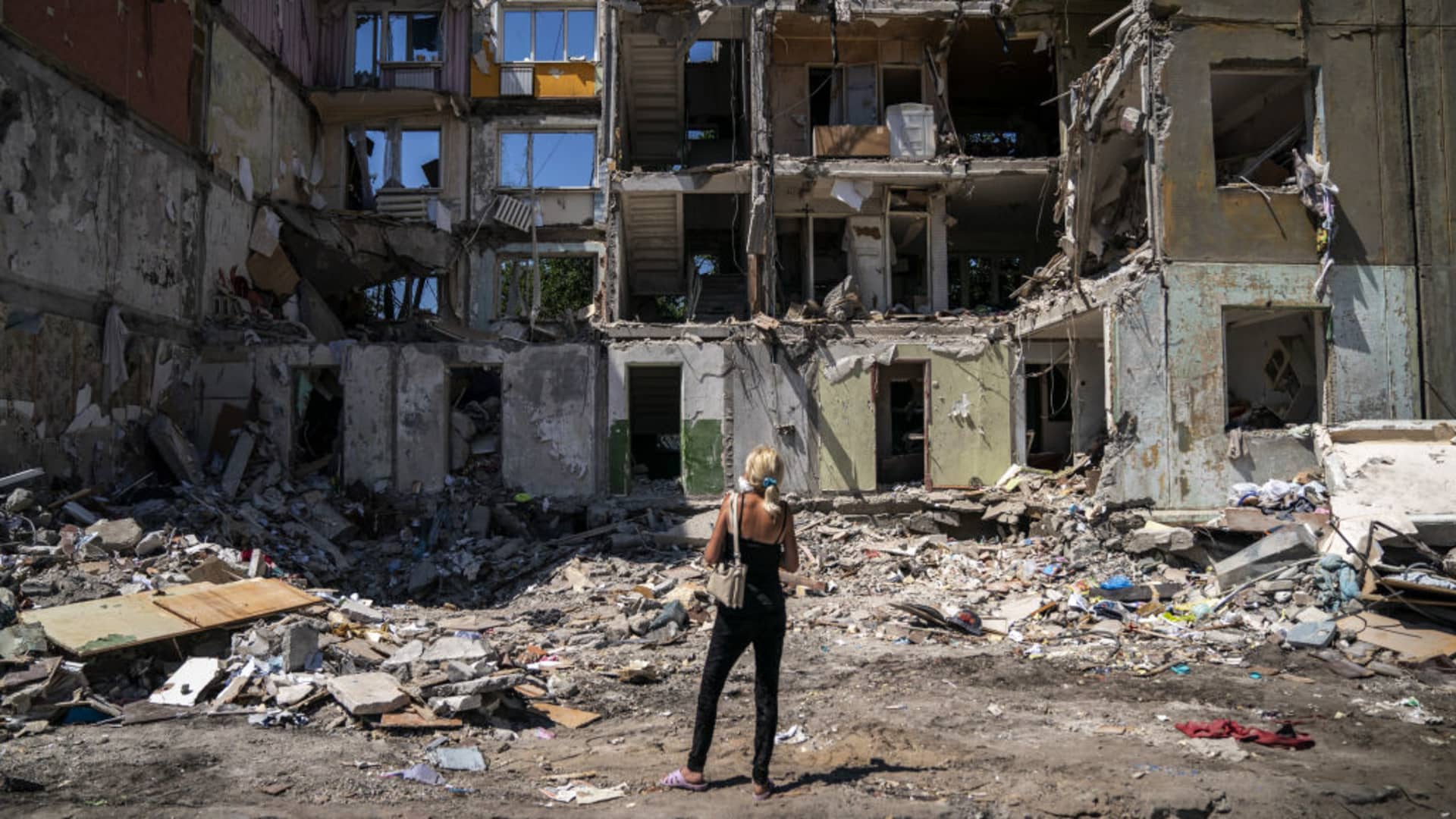A view of damaged building amidst rubble after the Russian missile attack in Myrnohrad, Donetsk Oblast, Ukraine on July 16, 2024.
Jose Colon | Anadolu | Getty Images
Germany is set to significantly reduce funds dedicated to strengthening partner states in the areas of security, defense and stabilization — a section of its budget which has typically included support for Ukraine, a draft of the country’s 2025 budget shows.
Money allocated to support for partner countries will be cut to 4 billion euros ($4.4 billion) in 2025, down from 7.5 billion euros allocated in 2024, according to the draft budget which was has been seen by CNBC. Around 5.4 billion euros had been allocated to the fund in 2023, the budget outline shows.
In recent years, large amounts of this section of the German budget has been allocated to support Ukraine following Russia’s attack of the country.
The German government now expects that Ukraine will be able to cover a significant part of its military needs and requirements from the $50 billion support package that was agreed last month by the G7, according to the draft budget.
It also noted that Germany would continue to support Ukraine for as long as needed, in collaboration with its allies.
“Ukraine’s financing is secured for the foreseeable future thanks to European instruments and the G7 loans,” German Finance Minister Christian Lindner said in a press conference on Wednesday, according to Reuters.
Uncertainty about future aid for Ukraine is rising as former President Donald Trump’s chances to win back the White House appear to be increasing. The possibility of a second Trump presidency has sparked concerns about whether U.S. aid for Ukraine could be cut or halted.
Trump’s vice-president pick Sen. JD Vance has also strongly opposed more aid for Ukraine.
Germany’s spending plan was approved by the cabinet on Wednesday after tense negotiations led to coalition leaders finally announcing the plans for their 2025 budget earlier this month. At the time, German Chancellor Olaf Scholz listed defense as one of the cornerstones of the budget.
The draft budget outlines plans the from government to spend more than 2% of its gross domestic product on defense and security — a spending increase that is in response to the war between Russia and Ukraine. Military alliance NATO dictates that member countries should spend at least 2% of their GDP on defense.
German budget planning was thrown into a crisis last year, when a decision from the constitutional court resulted in a 60-billion-euro funding gap across several years of its spending plan. The government had planned to re-allocate unused emergency debt, which was taken on during the Covid-19 pandemic, to its future spending plans. The court said this was unconstitutional.
The German parliament will debate the draft budget when it returns from its summer break in September before it is finalized later in the year.
